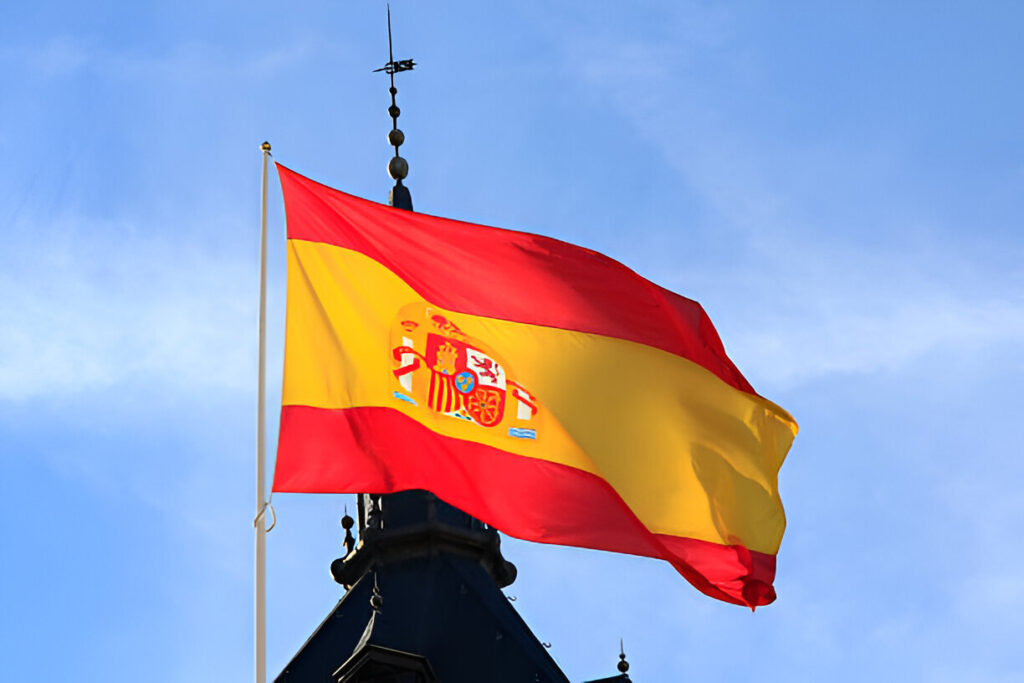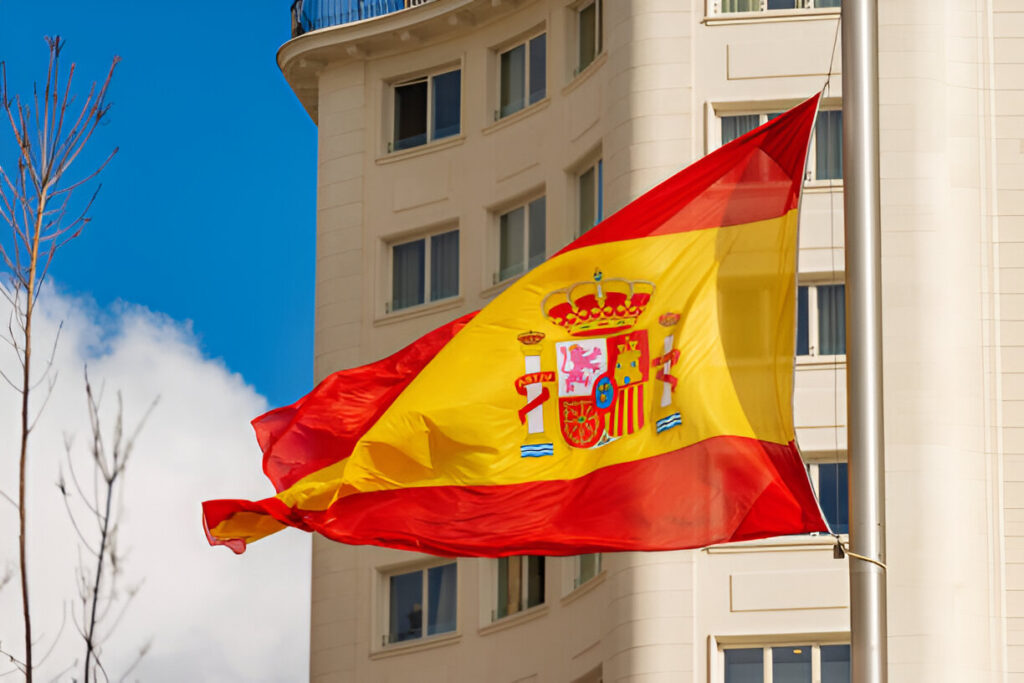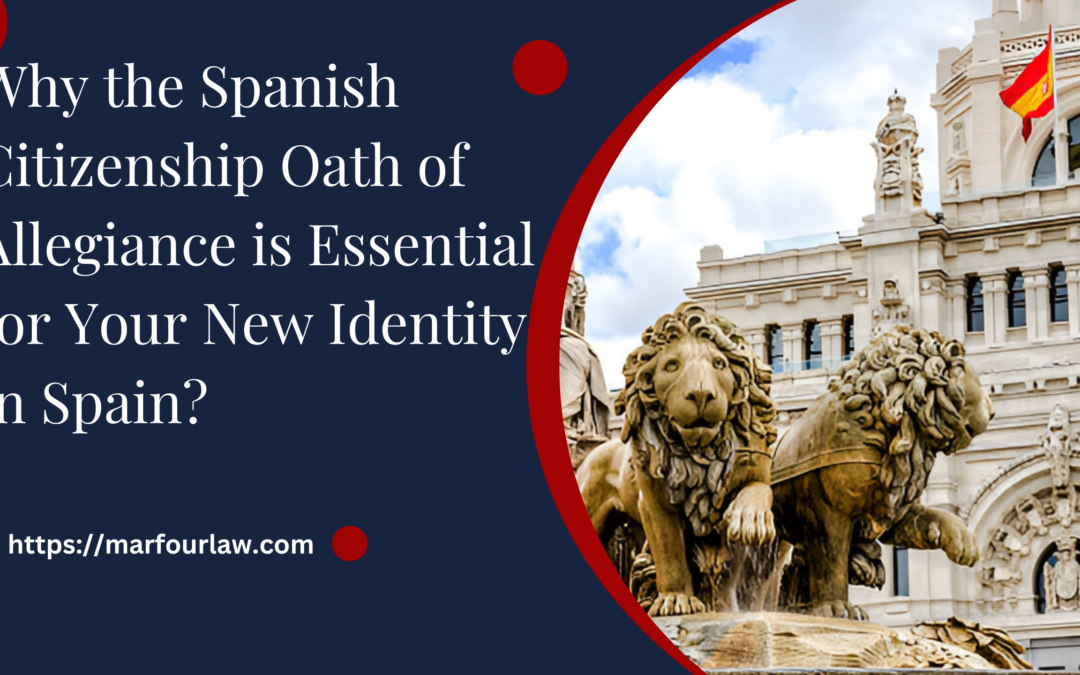The Spanish Citizenship Oath of Allegiance is a crucial part of the process for acquiring Spanish nationality. If you’re considering becoming a Spanish citizen, understanding this oath is vital. It’s not just a formality; it signifies your commitment to Spain and its values. Here’s everything you need to know about it.
What is the Spanish Citizenship Oath of Allegiance?
The Spanish Citizenship Oath of Allegiance is an important final step in becoming a Spanish citizen. It represents a formal promise to respect and uphold the values of Spain. Let’s explore this process in detail.
What the Oath Entails
The Citizenship Oath is a solemn declaration where new citizens pledge their commitment to Spain’s Constitution and laws. This pledge signifies that they agree to adhere to Spanish legal principles and democratic values. It’s akin to making a promise to uphold the rules and principles of your new community, ensuring that you respect its fundamental beliefs and practices.
Ceremony Process
The oath is typically administered during a formal ceremony held at a local administrative office or similar venue. During this event, new citizens publicly make their pledge of allegiance. This ceremony not only marks the transition to citizenship but also serves as a ceremonial acknowledgment of the new role and responsibilities. It’s a significant occasion, much like a graduation ceremony, symbolizing the start of a new chapter in one’s life.
Specifics of the Oath
The oath itself is quite direct and clear. New citizens agree to respect and follow the Spanish Constitution and laws. This includes abiding by Spanish regulations, participating in civic duties, and supporting the democratic framework of the country. The promise is about embracing the legal and ethical standards set by Spain and contributing positively to its society.
Importance of the Oath
Taking this oath is crucial because it represents a formal commitment to Spain. It’s more than a ceremonial act; it’s a pledge to be an active, responsible member of Spanish society. By making this promise, individuals not only gain citizenship rights but also accept the corresponding responsibilities. This commitment helps ensure that new citizens are dedicated to upholding the values and laws of their new country.
Final Step in Gaining Citizenship
Once the oath is taken, individuals officially become Spanish citizens. This final step completes the naturalization process and signifies a new beginning. It’s like receiving the keys to a new home—signifying that you’re now part of a new community and ready to embrace your role within it. This momentous step highlights both the personal and legal transition to full citizenship in Spain.
In essence, the Spanish Citizenship Oath of Allegiance is a fundamental aspect of becoming a Spanish citizen. It involves a formal pledge to respect Spain’s laws and values, marking the end of the citizenship process and the start of a new chapter as a member of Spanish society.
How Do You Say the Pledge of Allegiance in Spanish?
If you’re wondering about the translation of the Pledge of Allegiance into Spanish, it’s helpful to know the term used in this context. The Pledge of Allegiance in Spanish is often referred to as “Juramento de lealtad.” This phrase embodies the same sense of commitment and dedication as the English version.

Saying the Pledge of Allegiance in Spanish
The Pledge of Allegiance is a heartfelt expression of patriotism for many Americans. If you’re curious about how to say it in Spanish, it’s a bit more than just a direct translation. Let’s dive into the details and explore how this iconic pledge is rendered in Spanish.
Translating the Pledge
- First off, the Pledge of Allegiance in English goes like this: “I pledge allegiance to the flag of the United States of America, and to the Republic for which it stands, one nation under God, indivisible, with liberty and justice for all.”
- In Spanish, this translates to: “Juro lealtad a la bandera de los Estados Unidos de América, y a la República que representa, una nación bajo Dios, indivisible, con libertad y justicia para todos.”
Breaking Down the Translation
- “Juro lealtad a la bandera”: This phrase means “I pledge allegiance to the flag.” “Juro lealtad” directly translates to “I pledge loyalty” or “I swear allegiance,” capturing the essence of the original pledge.
- “de los Estados Unidos de América”: Here, “de los Estados Unidos de América” translates to “of the United States of America.” This part is straightforward as it simply identifies the country being referred to.
- “y a la República que representa”: This translates to “and to the Republic that it represents.” It maintains the idea of allegiance not only to the flag but also to the nation it stands for.
- “una nación bajo Dios”: This phrase means “one nation under God.” In Spanish, “una nación bajo Dios” captures the same sentiment as in English.
- “indivisible, con libertad y justicia para todos”: Finally, this translates to “indivisible, with liberty and justice for all.” The term “indivisible” remains the same, while “con libertad y justicia para todos” ensures that the principles of liberty and justice are clearly conveyed.
Cultural Nuances
The translation of the Pledge of Allegiance in Spanish maintains the same sense of commitment and unity. However, it’s important to note that the way people relate to and express patriotism can vary based on cultural contexts. In Spanish-speaking communities, the pledge might be recited differently depending on local traditions or personal preferences.
Why It Matters
Learning how to say the Pledge of Allegiance in Spanish isn’t just about translation; it’s about connecting with the values and symbols of another culture. Whether you’re a student of language or just curious about different expressions of patriotism, knowing this translation can help deepen your appreciation for both languages and cultures.
So next time you hear the Pledge of Allegiance, whether in English or Spanish, you’ll understand not just the words but the shared sentiment of commitment and unity behind them.
What Happens During the Oath Ceremony?
The oath ceremony is the final step in becoming a citizen, and it’s a significant event that marks the end of a long process. Here’s a detailed look at what happens during this important day.
Arrival and Checking In
When you arrive at the venue for the oath ceremony, you’ll need to check in. This involves verifying your identity and ensuring all your paperwork is correct. Think of it as the first step in getting ready for the ceremony. You might have to wait for a bit as other attendees arrive and get settled. This is a good time to take a deep breath and prepare for the big moment ahead.
Beginning of the Ceremony
Once everyone has checked in and taken their seats, the ceremony officially begins. The room will be filled with a mix of new citizens, their families, and sometimes local officials or judges. The atmosphere is often filled with a sense of pride and anticipation. The ceremony might include a brief introduction or a welcome speech, setting the tone for the formal proceedings.
Reciting the Oath
The central part of the ceremony is when you take the oath of allegiance. You’ll be asked to stand and recite a pledge, promising to support and defend your new country. This is a solemn moment where you officially become a citizen. It’s normal to feel a mix of emotions, from excitement to nervousness. This pledge is the formal act of joining your new nation and accepting all the responsibilities and privileges that come with citizenship.
Receiving Your Certificate of Citizenship
After you’ve recited the oath, you’ll be handed your certificate of citizenship. This document is your official proof of being a citizen and serves as a keepsake of this important day. The certificate is often presented by a judge or an official, and this moment is usually accompanied by applause from the audience. It’s a tangible reminder of your achievement and the end of a long process.
Celebrations and Reflection
Once the formal part of the ceremony is complete, there’s often time for celebration. You might take photos with family and friends, chat with other new citizens, and enjoy the celebratory atmosphere. This is a great opportunity to reflect on your journey and think about what lies ahead as you embrace your new citizenship.
What You Need to Know About Allegiance en Español?
Allegiance, or “lealtad” in Spanish, refers to a sense of loyalty or commitment to a person, group, or nation. It’s about standing by someone or something through thick and thin. When we talk about allegiance in different contexts, like legal or political, it often means showing a firm commitment to certain principles or entities. So, why is this concept so important? Imagine you’re part of a team where everyone supports each other—that’s the kind of allegiance that helps groups thrive.
Legal Aspects of Allegiance
In legal terms, allegiance can play a crucial role, especially when it comes to citizenship. For instance, when someone becomes a citizen of a country, they often take an oath of allegiance, promising to support and defend their new home. This pledge is a formal way of expressing loyalty and commitment. If you’ve ever heard of people swearing in for a new citizenship, that’s the allegiance part of the process. It’s like a handshake that signifies you’re all in.
Allegiance in Business and Employment
In the world of work, allegiance can mean sticking with a company or following a specific set of ethical guidelines. Employers often look for employees who show strong allegiance because it suggests reliability and trustworthiness. Imagine working with someone who always gives their best and supports the company’s goals—that’s the kind of dedication employers value. It’s not just about doing the job; it’s about being committed to the team’s success.
Allegiance and Personal Relationships
When it comes to personal relationships, allegiance means standing by friends and family through various challenges. It’s about loyalty and support in both good times and bad. Think of it like this: if a friend is going through a tough time, your allegiance to them means being there and offering help. It’s about more than just saying you care—it’s about showing up and proving it.
How Allegiance Impacts Society?
On a larger scale, allegiance can affect how communities and societies function. When people feel a strong sense of allegiance to their country or community, they’re more likely to participate in civic duties and contribute positively to society. For example, someone who feels a deep connection to their country might be more active in voting or volunteering. It’s a way of showing that they’re invested in the collective well-being.
How Can You Prepare for the Oath?
Before you take an oath, it’s important to grasp what you’re committing to. An oath is a serious pledge or promise, often involving loyalty, allegiance, or adherence to certain principles. Whether it’s for a new citizenship, a job, or a legal matter, knowing the specifics of what you’re swearing to uphold will help you prepare mentally and emotionally. Think of it as making a personal contract with yourself and others—it’s crucial to understand every term before you sign on the dotted line.

Gather Necessary Documents
Preparation often starts with paperwork. Collect all required documents well ahead of time. This might include identification, proof of citizenship, or any forms related to the oath-taking process. Make a checklist to ensure you have everything needed. For example, if you’re becoming a citizen, you might need proof of residency or a completed application. Organizing these documents in advance will help you avoid last-minute stress.
Familiarize Yourself with the Ceremony
Each oath-taking ceremony can have its own format and expectations. Find out what the event will entail. Will there be a formal ceremony? What should you wear? Knowing these details can help you feel more at ease. Imagine walking into a new environment knowing exactly what to expect—preparing for the ceremony ensures you’re comfortable and focused on the oath itself.
Reflect on the Commitment
Taking an oath often means a significant commitment. Spend some time reflecting on what this commitment means for you. Consider how it aligns with your values and what responsibilities it will entail. For example, if you’re pledging allegiance as a new citizen, think about how you’ll contribute to your new country. Reflecting on these aspects helps solidify your resolve and makes the commitment feel more personal and meaningful.
Practice Your Oath
If possible, practice reciting the oath. This isn’t about memorizing words but about getting comfortable with what you’ll be saying. Practice in front of a mirror or with a friend. The more you rehearse, the more natural it will feel. It’s like preparing for a big presentation—knowing your lines helps you speak confidently and clearly.
Seek Support
Talk to others who have taken similar oaths. They can provide valuable insights and advice on how to prepare. Whether it’s friends, family, or even online forums, learning from others’ experiences can be incredibly helpful. They might share tips on what to expect and how to handle any nervousness.
Marfour International Law Firm stands out in the legal field for its dedication to providing top-notch legal services with a personalized touch. Specializing in areas such as international business law, immigration, and real estate, Marfour combines expertise with a deep understanding of each client’s unique needs.
Their team of experienced professionals is committed to delivering practical solutions and strategic advice, ensuring clients receive tailored support every step of the way. Whether you’re navigating complex legal issues or seeking expert guidance, Marfour’s approach emphasizes clear communication and client-focused service, making them a trusted partner in achieving your legal goals.
Frequently Asked Questions
Do I need to be fluent in Spanish to take the oath?
While fluency in Spanish is not mandatory, having a basic understanding of the language helps. The oath is typically administered in Spanish, and understanding its meaning is crucial.
What is the process if I miss my oath ceremony?
If you miss your scheduled oath ceremony, you will need to contact the relevant authorities to reschedule. Missing the ceremony can delay your citizenship process, so it’s important to attend as scheduled.
Is the oath required for all paths to Spanish citizenship?
The oath is specifically required for those obtaining citizenship through naturalization. If you are acquiring Spanish citizenship through descent or marriage, you may not need to take the oath.
Can I take the oath in a language other than Spanish?
The oath must be taken in Spanish. However, if you need assistance, translation services are often available during the ceremony.
What happens if I don’t take the oath?
Failing to take the oath means you will not complete the naturalization process, and your application for Spanish citizenship will be denied.
Conclusion
The Spanish Citizenship Oath of Allegiance is a significant step in the journey to becoming a Spanish citizen. It symbolizes your commitment to Spain’s values and legal system. By understanding what the oath entails and how to prepare for it, you ensure a smoother path to acquiring your citizenship. Whether you’re familiarizing yourself with “Juramento de lealtad” or navigating the ceremony’s formalities, being well-prepared will help you fulfill this important requirement with confidence.

